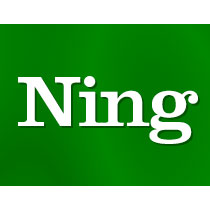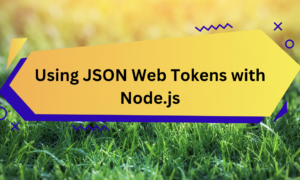 I’m at the Technology Review Emerging Technologies Conference at MIT where Gina Bianchini, the co-founder and CEO of Ning just finished giving a keynote address about social networking and the company which she helped found. Ning is a platform that provides DIY, hosted social networks to about half a million groups. That’s pretty astounding growth, considering that at the beginning of this year Ning played host to just under 150,000 social networks.
I’m at the Technology Review Emerging Technologies Conference at MIT where Gina Bianchini, the co-founder and CEO of Ning just finished giving a keynote address about social networking and the company which she helped found. Ning is a platform that provides DIY, hosted social networks to about half a million groups. That’s pretty astounding growth, considering that at the beginning of this year Ning played host to just under 150,000 social networks.
According to Bianchini, a new social network is added to Ning every 30 seconds and 65% of them are active (user logins within the past month).
Bianchini started her presentation by showing a slide of the web circa 1995 — AOL, Prodigy, Compuserve. The web in 1995 was a bunch of walled gardens, she said. Then she showed a slide depicting today’s web — Facebook, MySpace, LinkedIn, YouTube. They’re still walled gardens, said Bianchini, the names have just changed.
All of those sites define what users can and should be allowed to do on their own terms. They’re general “one-size-fits-all”-type social networks that wall you into their own way of accomplishing things. Ning, on the other hand, takes a platform approach, and ultimately, says Bianchini, the platform approach wins because it allows freedom and doesn’t pigeon hole you into a specific way of doing things.
The proof is in the results, according to Ning, who used a number of case studies to illustrate her point. One of the most intriguing might be the Ning-powered social network for Ask a Ninja, the popular web video series. It has almost 10,000 members — about 1,500 more than its Facebook fan page — and gets about six times the pageviews of the Facebook page, according to Bianchini. The reason, she says, is the tight integration with the core Ask a Ninja brand that is possible with Ning and impossible when using predefined software like Facebook. (Though it might be noted that Ask a Ninja’s MySpace page outstrips both Facebook and Ning by over 70,000 users — it has been around longer than either, however.)
And Ning might actually be as open as Bianchini claims. Though at its core, all of the sites social networks run on the same underlying platform and thus have a similar feel — every site does videos the same way, does events the same way, does photos the same way, etc. — Ning’s support for OpenSocial means that theoretically developers could create plugins to extend their social network in any way they want.
I asked Bianchini how portable data on Ning is, and she told me that every Ning social network comes with an API that allows access to all membership data and data uploaded to the social network. That means that if I start a network on Ning, then decide it isn’t for me and want to take my data back out, that’s at least mostly possible. Ning’s other co-founder, Marc Andreessen, told the audience at the Web 2.0 Expo in San Francisco last April that Ning was very much behind the concept of data portability.
We talked in August about how damaging closed platforms will be to the web, so we hope that Ning will make good on their promises and remain a truly open platform.
Ning’s approach is also apparently more profitable. According to Bianchini, Ning is seeing eCPM’s on its niche social networking pages of 3-4x the reported average eCPM for general social networks. 3% of Ning’s users pay the company for premium services, and the rest help the company make more money via ads by connecting advertisers to niche groups of people that command higher CPMs.
Bianchini also revealed that iPhone support would be launching at Ning on Friday, and hinted at Google Android support in the future.
 Josh Catone
Josh CatoneBefore joining Jilt, Josh Catone was the Executive Director of Editorial Projects at Mashable, the Lead Writer at ReadWriteWeb, Lead Blogger at SitePoint, and the Community Evangelist at DandyID. On the side, Josh enjoys managing his blog The Fluffington Post.




































































































